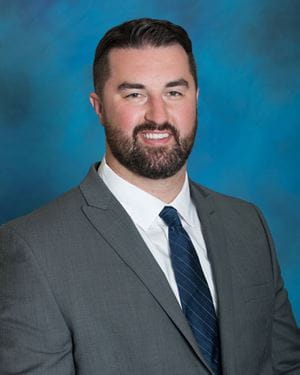
6/27/2023
PITTSBURGH — People with obesity who suffer a mild traumatic brain injury (mTBI) may be at risk for prolonged mTBI-related symptoms, likely due to increased systemic inflammation, according to a new study conducted by researchers at the University of Pittsburgh School of Medicine.
The research, published today in the Journal of Neurology, Neurosurgery and Psychiatry, evaluated patients — both obese and those with a healthy body mass index (BMI) — enrolled in the Transforming Research and Clinical Knowledge in Traumatic Brain Injury (TRACK-TBI) study within 24 hours of sustaining an mTBI. Patients had their blood sampled to check for inflammatory biomarkers and completed outcome assessment questionnaires over a 12-month period. The study is the first to investigate if obesity impacts the relationship between recovery time, symptoms and increased inflammatory response in mTBI patients.
“Obesity is something that has been largely ignored when someone suffers from an mTBI,” said lead author Shawn Eagle, Ph.D., research assistant professor in the Department of Neurological Surgery at Pitt. “The role of obesity has been studied in patients with more severe brain injuries, but little is known about its effect on milder brain injuries.”
 Despite the “mild” moniker, 53% of patients with mTBI who present to an emergency department have functional limitations one year later. Patients can be rehabilitated using cognitive behavioral and physical therapies, but those with prolonged neuroinflammation tend to have a longer recovery process and more severe symptoms.
Despite the “mild” moniker, 53% of patients with mTBI who present to an emergency department have functional limitations one year later. Patients can be rehabilitated using cognitive behavioral and physical therapies, but those with prolonged neuroinflammation tend to have a longer recovery process and more severe symptoms.
Two blood biomarkers — high sensitivity C-reactive protein (hsCRP) and interleukin protein six (IL-6) — are both important in mediating inflammatory response after mTBI. HsCRP is a protein made by the liver that is associated with increased systemic inflammation, and IL-6 promotes inflammation by allowing inflammatory proteins in the body to be expressed.
The mTBI patients with obese BMI had higher concentrations of hsCRP compared to those with a healthy body BMI on the day of injury, as well as two weeks and six months after injury, whereas their IL-6 concentration was greater at two weeks, six months and 12 months after injury.
Eagle explained that the blood biomarkers spiked at different times in the obese mTBI patients mainly because hsCRP is a marker of systemic inflammation, whereas IL-6 is more often associated with trauma.
"If a patient is obese, it means that they have a higher baseline inflammatory state, and their hsCRP levels spike even higher after brain trauma," Eagle said. "IL-6 also spikes after trauma, and higher levels are associated with worse outcomes after sustaining an mTBI."
Although there were not more obese patients — compared to that of those with healthy BMI — who had an incomplete functional recovery, assessments at six and 12 months after injury showed that obese patients had prolonged mTBI symptoms compared to the healthy BMI cohort.
Past studies have determined that obesity and mTBI are separately associated with inflammation. Similarly, animal studies have explored the relationship between obesity and brain injury recovery. However, no research had been conducted examining the way that obesity could possibly mediate the inflammatory response and mTBI symptoms in humans.
“Our hope is to build our research program to find treatments that reduce inflammation and improve overall health for obese patients after sustaining an mTBI,” said Eagle. “Our findings suggest clinicians should consider higher body mass as a risk factor for poor responses to mTBI.”
This research was funded by the National Institutes of Health (grant 1U01NS086090-01).
Other authors of the study include Ava M. Puccio, Ph.D., and David O. Okonkwo, Ph.D., both of Pitt; Lindsay D. Nelson, Ph.D., and Michael McCrea, Ph.D., both of the University of Wisconsin; Joseph Giacino, Ph.D., of Harvard University; Ramon Diaz-Arrastia, Ph.D., of the University of Pennsylvania; William Conkright, Ph.D., of the U.S. Army Joint Base Lewis-McChord; Sonia Jain, Ph.D., and Xiaoying Sun, Ph.D., both of the University of California San Diego; Geoffrey Manley, Ph.D., of the University of California San Francisco, and TRACK-TBI Investigators.
PHOTO DETAILS: (click image for high-res version)
CREDIT: University of Pittsburgh
CAPTION: Shawn Eagle, Ph.D.
















